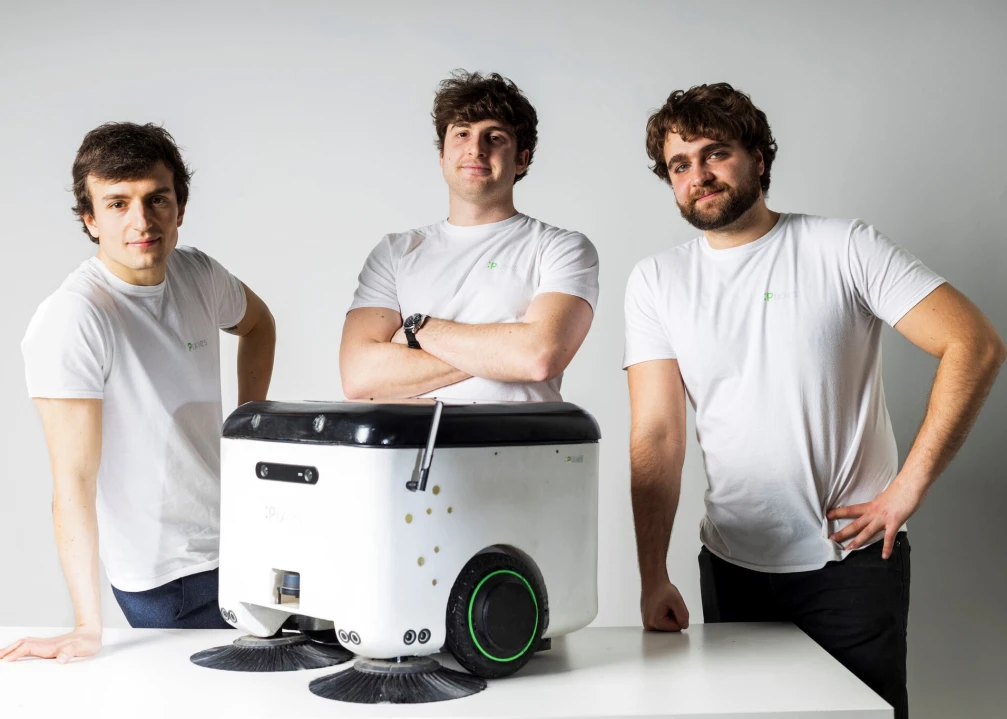The historical period of transition in which we currently live is characterized by profound changes. The challenge that is required in the aftermath of the COVID pandemic that is still holding part of the world back, imposes a different vision of the dynamics that fill our daily lives.
Urban regeneration, redevelopment, sustainable future.
These are some of the values of the Green Alley Award, dedicated to the circular economy that offers 25,000 euros for the best European startups. Currently there are only 20 projects in the race, 6 of them will be shortlisted on next April 22nd. Italy is well represented this year by Pixies, a reality born from the ingenuity of three young and brilliant Roman engineers: Andrea Saliola, Pierpaolo Ceccaranelli and Flavio Ceccarelli. It consists of robots made entirely from 3D printed recycled plastic, which, thanks to artificial intelligence, can clean our streets autonomously, with zero impact.
This is because the robot is entirely powered by solar energy produced by a bench, under which the device is powered at the end of the charge, with an autonomy of 12 hours that gives time to fill a double tank of 50 liters (13 gallons) each. This is a new way to fight littering, i.e. urban pollution caused by daily urban waste, such as cigarette butts and waste paper. An internal system also allows plastic to be sorted, contributing to recycling and reducing the impact on the ecosystem.
Advantages of Pixies
The devices can be used in the streets and squares of cities, especially in smaller towns, with which the team has already initiated contacts: it is estimated that Pixies can reduce urban cleaning expenses of a sum between 30 and 40%. The fact that robots can complement street cleaning creates greater efficiency by providing cities with a resource that doesn't require vacations, holidays, limited hours and all the other natural and fair protections of street cleaning workers. Moreover, the advanced sensor technology of the product avoids both fixed and mobile obstacles, allowing the integration between natural ecosystem and artificial constructions, as well as coexistence with the population. In addition, it will also be possible in the future to plan further integrations in the most diverse fields.
Disadvantages of Pixies
Beyond possible risks related to the damage that incivility could cause to these robots, since in reality innovation is not always fully accepted, in general the real problem is that Pixies does not currently offer a complete solution to the problem in terms of monetization and recycling. The tool of separating plastic is great, but many other materials we find on the streets are made of a kind of waste that need further division to have a truly zero impact on the ecosystem.
We The Italians' idea: combine Italian genius
The proposal is to integrate the project with another ingenious idea discussed in one of our previous articles for this column, about the startup "Grycle", which offers a solution to the problem of the division of materials to acquire "raw materials" obtainable from domestic equipment or otherwise of medium size.




